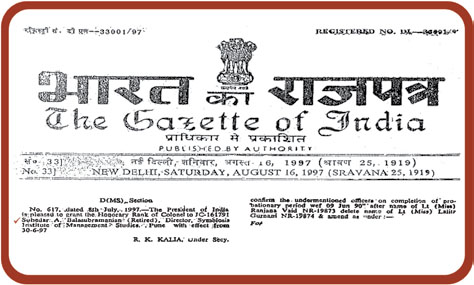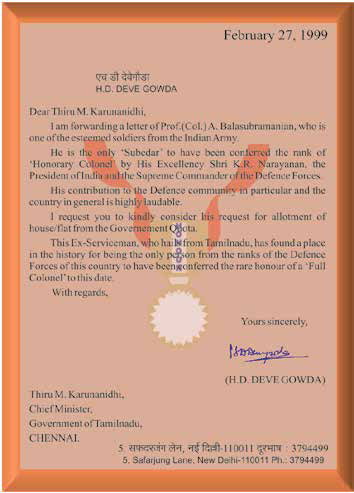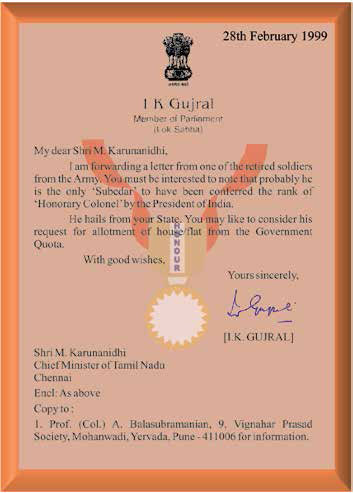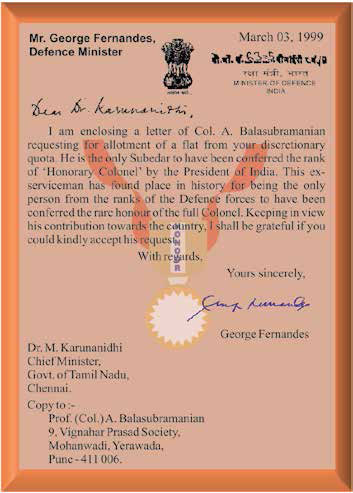Issue No.17 / November 1-15,2015

“There is more hunger for love and appreciation in this world than for bread.”
-Mother Teresa
As per the US Department of Labour Research, the number one reason most Americans leave their jobs is that they don’t feel appreciated. In fact, 65% of people surveyed said they got no recognition for good work -- that is, received no recognition from their bosses
As per a recent report by the US based Bersin & Associates (subsidiary of Deloitte) - a company empowering human resources through world- class research - recognition plays a much more measureable role in business performance than previously believed. The research found that in organizations where recognition occurs, employee engagement, productivity and customer service are about ‘14 percent better than in those where recognition does not occur.’
The research also revealed that nearly two- thirds of HR respondents indicated HR does not effectively enable recognition. This ineffectiveness is underscored by the fact that nearly half of HR respondents report that the organization culture does not support recognition and the fact that most recognition programs are designed to recognize service or tenure

In a study in the UK, an audit of recognition generated and received by employees within two large, nationwide, recognition programmes in 2013 stated, “There are clear differences between how men and women give and respond to recognition. In general, women give and receive more recognition, with 72% of women being recognised, compared to 57% of men. Men become much more engaged when there is a monetary award involved, whereas women tend to be better at just saying thank you.
In the Army, a system is in place for appreciation and recognition. For example, in a recruitment training centre, if a person is doing his drill very well, the drill master will recommend him for an additional quota of milk for one week. This kind of small gesture represents recognition. Otherwise, generally, people make themselves feel good by talking about themselves or other people talking about them. Most of the time, this thrill of listening about oneself, occupies our mind. This gives us an air of superiority or we think of it as an achievement.
I was a recipient of recognitions, repeatedly, in the Army. I recall one incident where my immediate superior did not like me and wanted to ‘fix’ me. The best way was to send me on a tough exercise, to a place with harsh weather conditions. My Commanding Officer (CO) was detailed as the Artillery Umpire for a divisional-level exercise in a remote area known as ‘Shera Garden’, close to the Chinese border in Ladakh. He wanted someone to assist him. I carried the typewriter and accompanied him to an extremely cold and barren land. Indeed, the name ‘Shera Garden’ was a misnomer. Living conditions were treacherous. We lived in tented accommodation, without any sort of light or amenities
The exercise got over. I returned, and on the first day what the Commanding Officer did was to pass a Regimental Order, appointing me, as an unpaid Lance Naik – this was a promotion (without monetary enhancement) but this was my first recognition. The biggest recognition for me from the Army was the rank of Honorary Colonel that was bestowed on me

Each day, after giving me the dictation at 7 a.m., he would go on the field for the exercise for the whole day. He would return to the tent at around 8 p m, go through what I had prepared based on the dictations and make corrections For this, he had to burn the midnight oil. His love and affection, and above all, the feeling that I was directly working with the CO gave me a thrill and I was enjoying every bit of this assignment, when, in actuality, I was sent there for a punishment posting by my detractors and by those who did not like me.
The exercise got over. I returned, and on the first day what the CO did was to pass a Regimental Order, appointing me, as an unpaid Lance Naik – this was a promotion (without monetary enhancement) but this was my first recognition. This kind of recognition keeps people going with higher level of motivation. When you do it in a fair and impartial manner, it ensures that others too try to reach that level to receive similar recognition
The biggest recognition for me from the Army was the rank of Honorary Colonel that was bestowed on me, about which I have written exhaustively in my earlier editorials.

Despite a call from the PM’s office, Karunanidhi again did not do anything, a reflection of how the Tamil Nadu government treated me. Finally, when I approached the Chairman of the Housing Board, he asked me for a bribe but I had no money to offer, otherwise I would have offered him, so desperate was I to get a house.
Thereafter, an Emergency was declared by the then Prime Minister, Indira Gandhi. She dismissed the Tamil Nadu government on corruption charges. The DMK cadre members were being hunted and put behind bars. The Chairman of the Tamil Nadu Housing Board, Rama Arankannal was behind the bars.
Shri Mohanlal Sukhadia, the then Governor of Andhra Pradesh was appointed as the Governor of Tamil Nadu and his ADC, Capt T K Jagannathan, was a good officer, whom I knew well. I requested him to get me a house allotted from Defence quota. He immediately called me to the Governor’s House. When I reached the Governor’s place, the ADC gave a call to the Housing Board and asked me to go and meet the Housing Board secretary. When I reached there, I was given royal treatment. They displayed various maps of various housing units and asked me to choose the house I wanted and take the allotment order immediately. I checked the rates and found I was not in a position to opt for the better houses. Finally I opted for a one bedroom house, which was allotted to me.
I have highlighted this incident to portray the sharp contrast in attitude to recognition. While my CO promptly uplifted my spirit by giving me a promotion the very next day of return from our sojourn to Shera Gardens, the politicians made me run from pillar to post, until a good friend of the Army came to my aide.
During my educational career, I also had opportunities to meet many political leaders including Prime Minister I K Gujral, Prime Minister Deve Gowda and Defence Minister George Fernandes. I had written to all three of them to get me a house allotted from the Tamil Nadu Government quota as I was a Decorated Soldier

I am reminded of a very heart-warming scene in the Bollywood movie, Munnabhai MBBS, where Sanjay Dutt, the hero, is talking to a frustrated sweeper. He touches the sweeper’s heart when he says that because of him, cleanliness is maintained in the hospital. This is a manifestation of the fact that like him, each one of us is doing something useful, whether big or small. What use is his good work, if it is not recognized?
In fact, what about Recognition in our homes? Rarely does a husband compliment his wife for a good meal or on her attire or if she is looking charming on a partiular day. Not that he does not admire her or vice versa, but it is our Indian social mindset wherein appreciation is not vocal and expressive. I feel, appreciation or recognition should be like a Champagne - given before the fizz is over.
For, what is it that inspires people to work? Is it the money, is it the job satisfaction, is it happiness, or is it power or authority? All these, according to me, are hygiene factors which give momentary pleasure; none of these have the power of giving you enduring happiness. Only Recognition inspires.
Dr (Col.) A. BAlASUBRANANIAN
editor-in-chief